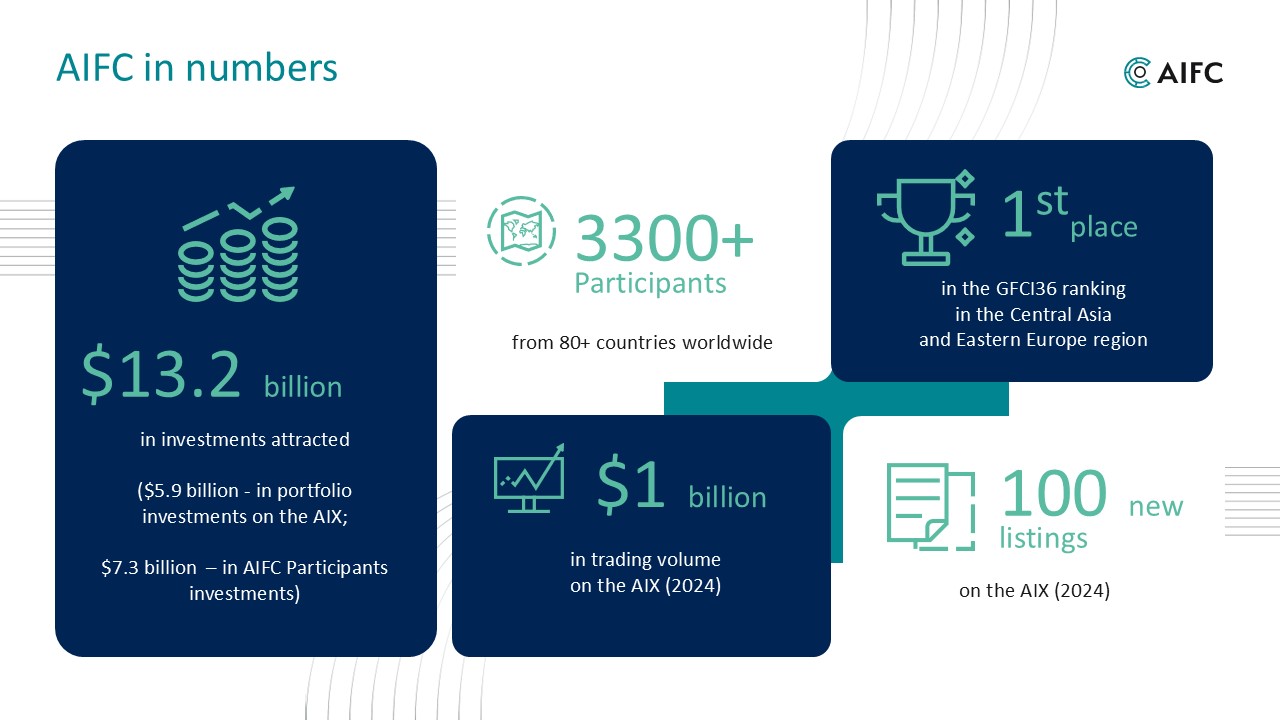AFSA provides prudential reliefs for authorised firms managing Collective Investment Scheme

AFSA announces prudential relief measures for firms authorised to carry out the regulated activity of Managing a Collective Investment Scheme in respect of Exempt Funds[1]. The respective class modification took effect on 24 April 2024 and may be found via this Notice.
The relief measures grant a grace period to Firms to comply with the Minimum Capital Requirement for the period of implementing their Risk Mitigation Programme[2] and 24 months after its completion.
Considering that there are firms that have already implemented their RMPs and operate more than 24 months, approximately 50% of the existing and all the new Authorised Firms licensed to carry out the Regulated Activity of Managing a Collective Investment Scheme in respect of Exempt Funds will be able to enjoy this grace period.
The relief measures have been introduced because newly emerging investment firms bring fresh perspectives, novel approaches, and disruptive technologies that have the potential to reshape the industry and drive economic growth.
However, we must also acknowledge that new investment firms face a distinct set of challenges as they navigate the regulatory environment in the AIFC. Unlike established players that have years of operation in the AIFC, they often lack the scale, resources, and institutional knowledge to comply with the stringent prudential requirements.
By providing targeted regulatory relief tailored to the unique circumstances of these firms, we can level the playing field, encourage entrepreneurship, unlock their full potential, and facilitate access to capital for startups, encourage investment in innovative projects.
AFSA Chief Executive Officer Nurkhat Kushimov said: “The unveiled prudential relief measures are a significant step forward in our regulatory approach aimed at fostering a more dynamic and competitive environment in the financial sector of AIFC and are a timely facilitator of balance between safeguarding the stability and integrity of the financial system while also promoting innovation, growth, and competitiveness within the industry.”
These measures are expected to enhance the fund and fund management environment in the AIFC, increase fund managers’ competitiveness by reducing their compliance costs, increasing access to capital, and implementing AFSA’s Strategy goals.
It should also be mentioned that Authorised Firms are required to disclose the applied grace period expressly in their Offering Materials for Unitholders and disclose the firms’ Capital Resources, calculated according to Chapter 3 of AIFC Prudential Rules for investment firms.
Capital Resources refer to financial assets and reserves that an investment firm holds to meet regulatory requirements and absorb potential losses.
To have control over the financial risks and market stability in short- and mid-term periods, AFSA will keep its intervention power, outlined in Rule 2.2.3 of AIFC Prudential Rules for investment firms.
This means that when certain unfavorable scenarios unfold in the market that may affect financial stability of the firm or the market in whole, AFSA may impose requirements on investment firms to have and maintain additional amounts of Capital Resources and/or Liquid Assets.
Liquid Assets refer to assets that can be easily converted into cash without significant loss of value or disruption to the market.
Other requirements set by AIFC Prudential Rules for investment firms, including those described in Liquid Assets requirement and Reporting and Notification requirements, remain applicable for Authorised Firms.







